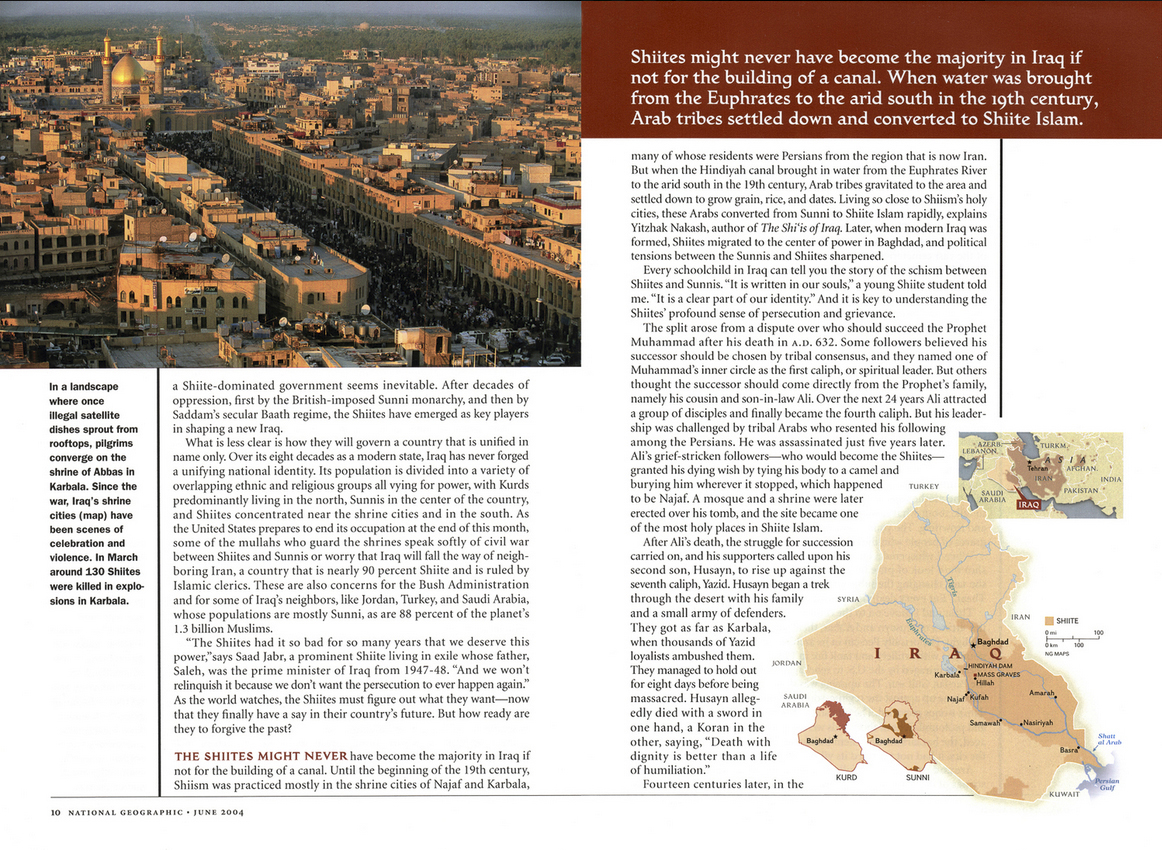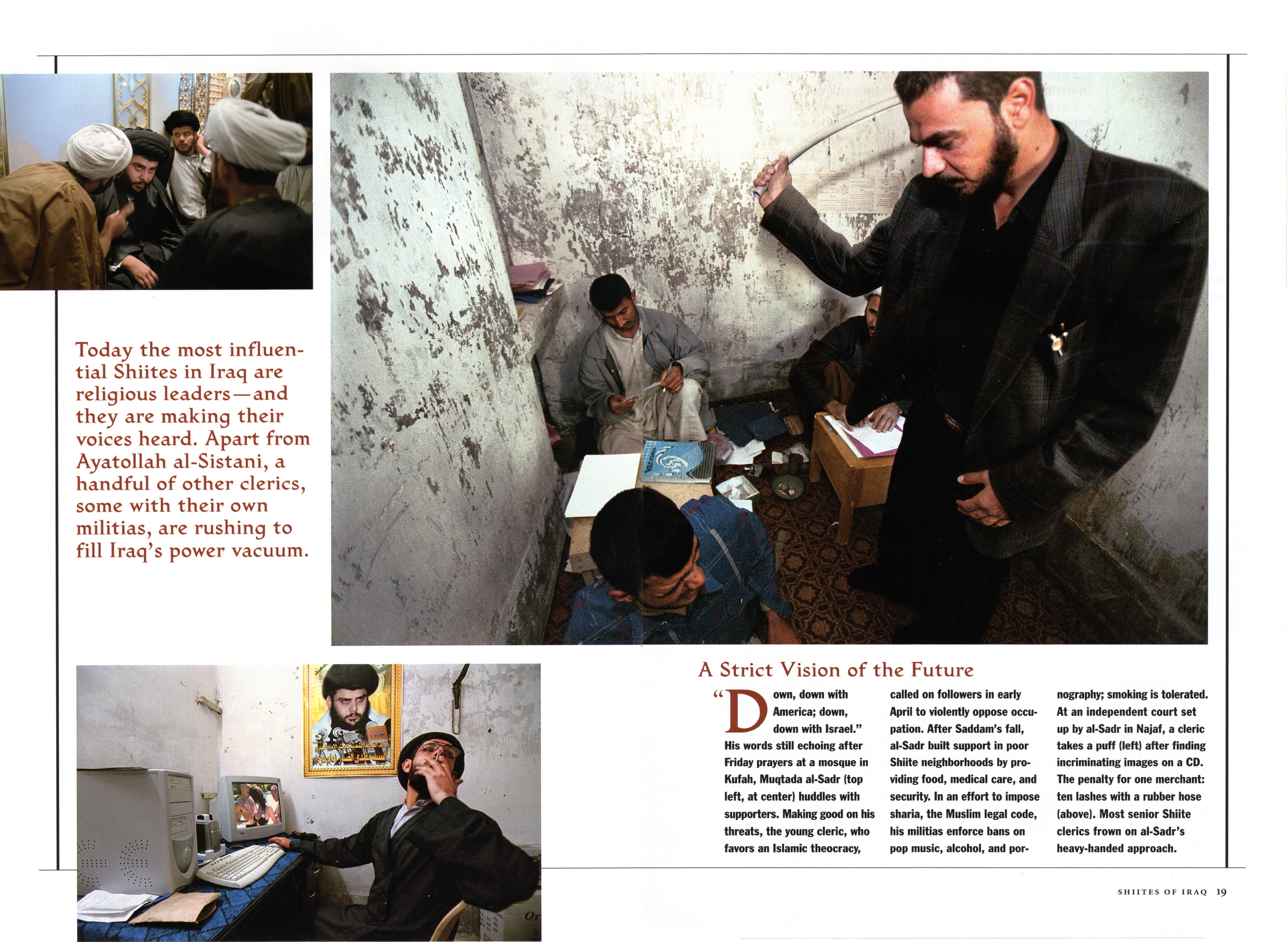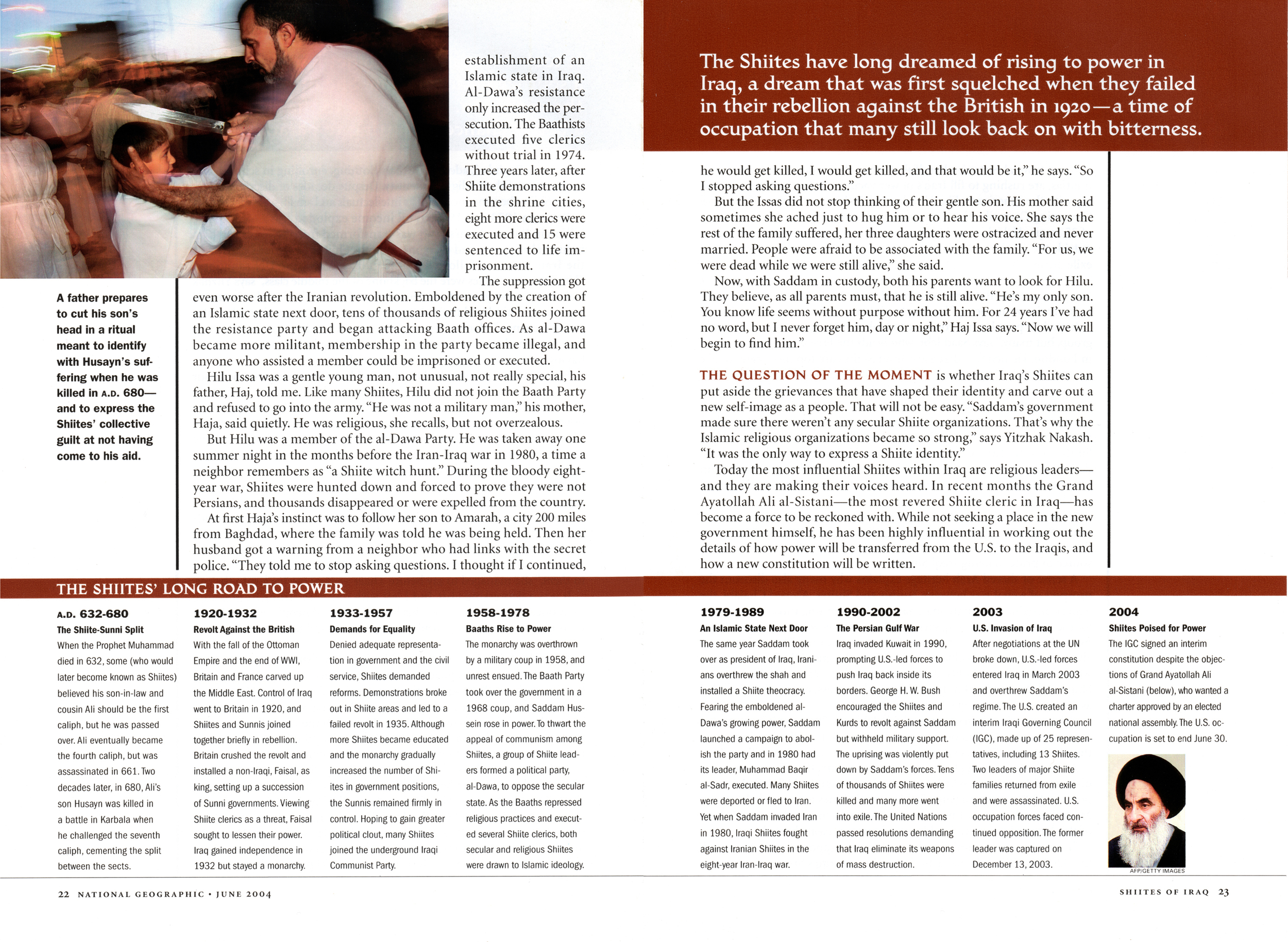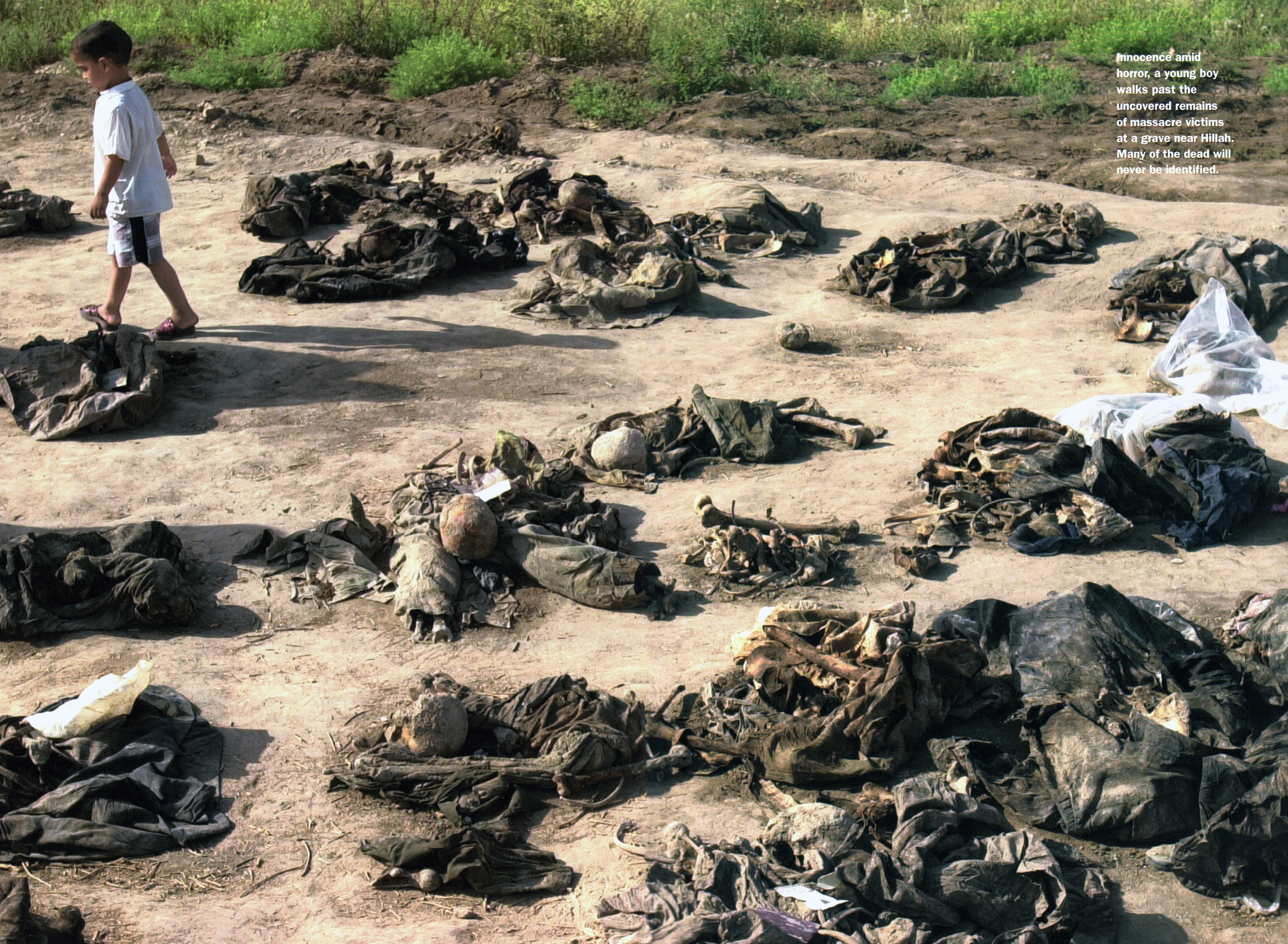Shiites of Iraq: Reaching for Power

Free for the first time in decades to worship openly, Shiite Muslim pilgrims crawl into the shrine of Imam Husayn, a Shiite martyr from the seventh-century, in Karbala, Iraq. Powerless under Saddam and predominately poor, the Shiites of Iraq now find themselves major players on the world stage often at odds with the world's only remaining superpower. Making up over 65 percent of Iraq's population the success or failure of the United States' occupation of Iraq rests squarely on the shoulders of this previously marginalized group of people.

A prostitute is led away from the brothel where she worked after a mob attacked brothels and beer sellers in the Old Basra neighborhood of Basra, Iraq. The mob, made up of men and boys from the neighborhood and a few Islamists, threw stones at many of the prostitutes as they ran for their lives. The mob also set fire to several of the businesses. In recent weeks there has been an increase in attacks on businesses that sell alcohol in Basra and some brothels have been attacked with hand grenades.
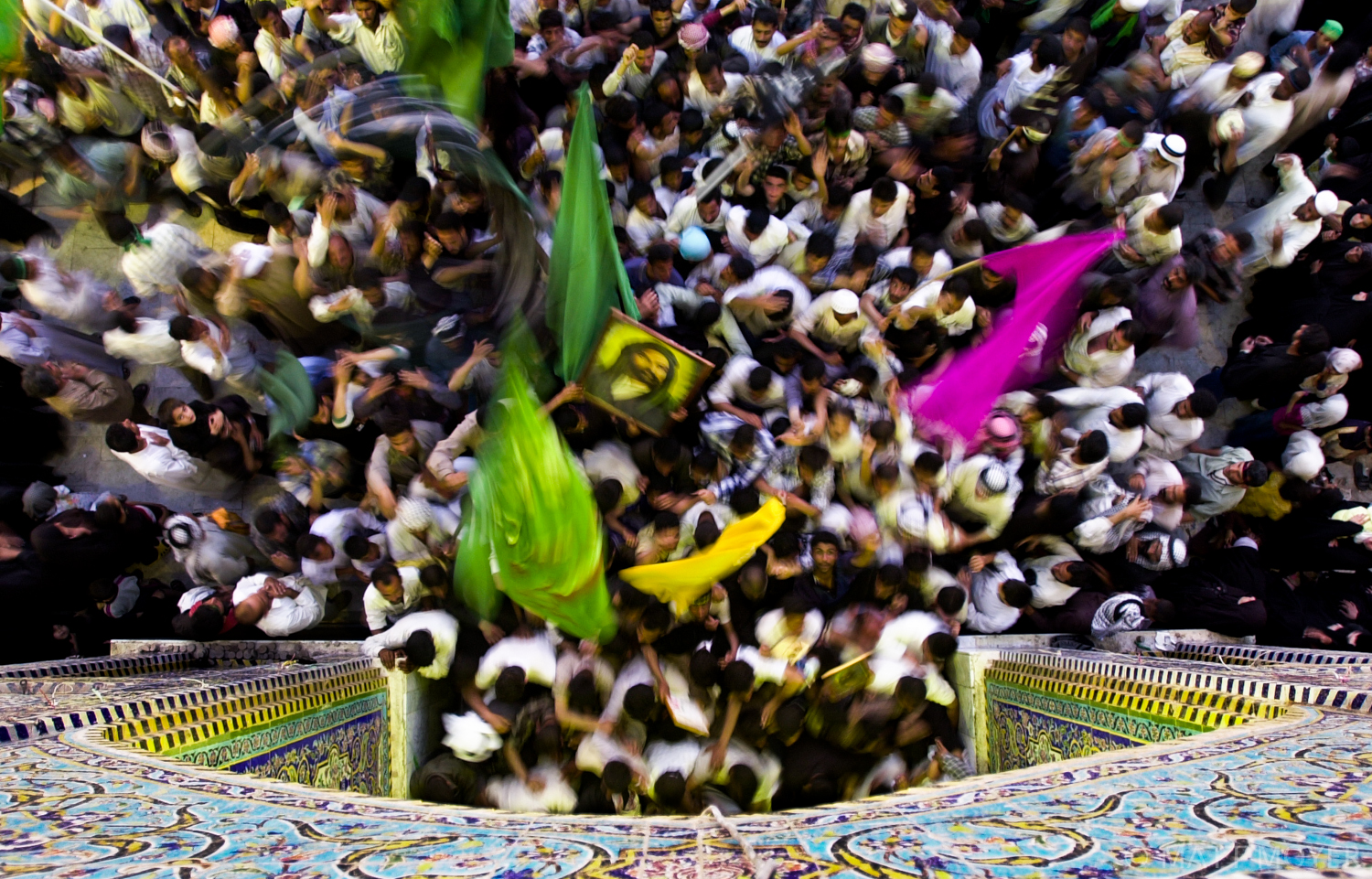
Worshipers flood toward the exit of a shrine in Karbala, Iraq.

A young boy weeve's his way through uncovered remains of massacre victims at a mass grave near Hillah, Iraq.
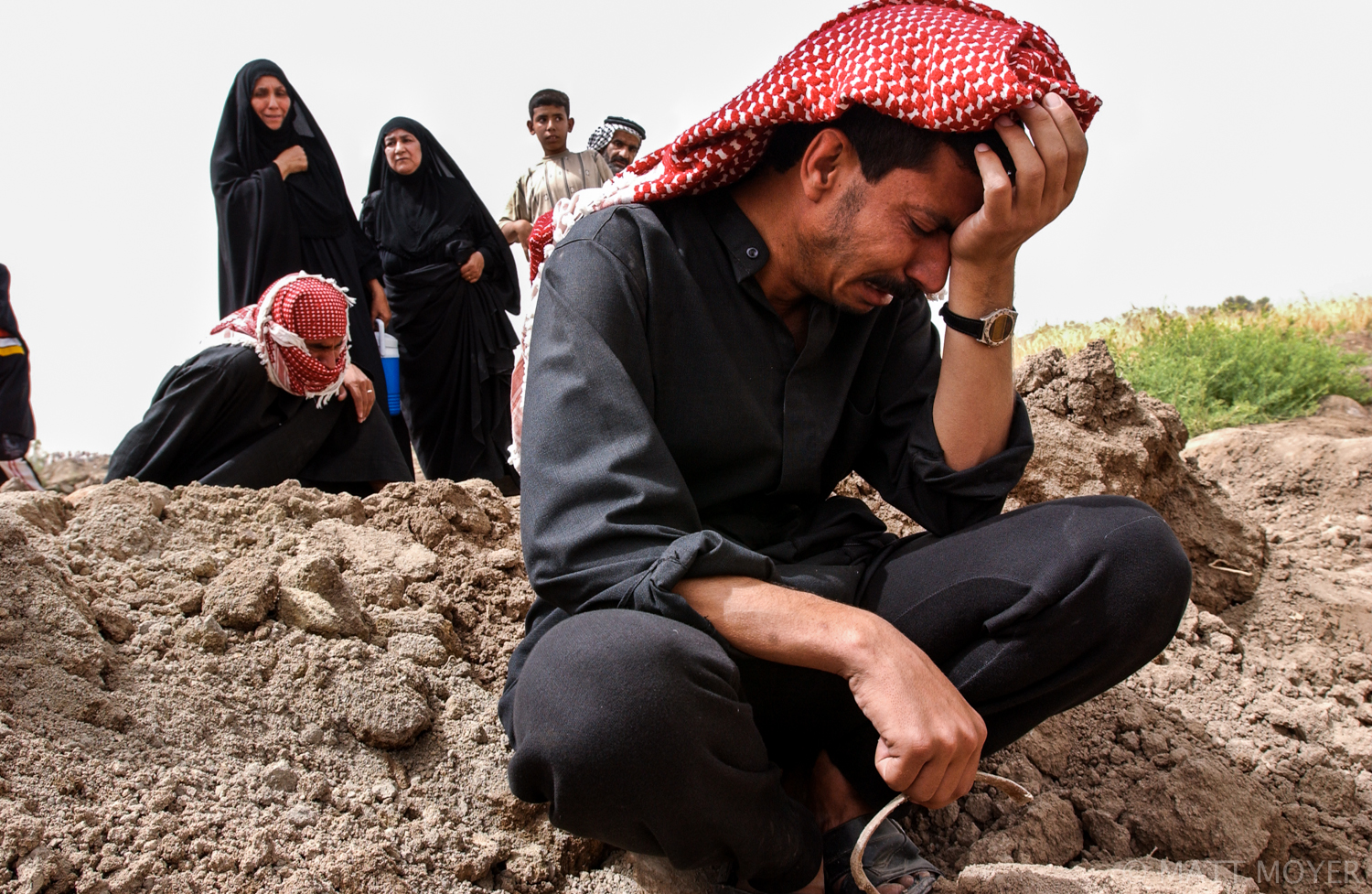
An Iraqi man cries while holding a human rib he pulled from the ground at the site of a mass grave near Hillah, Iraq.

A father prepares to cut the head of his son during a Shiite ritual in Najaf, Iraq. The ritual, which has been frowned upon by some moderate Shiite clerics, is meant to mourn the loss Hussayn, their beloved religious Imam, and to express the Shiite's collective suffering and sorrow over his death in A.D. 680.
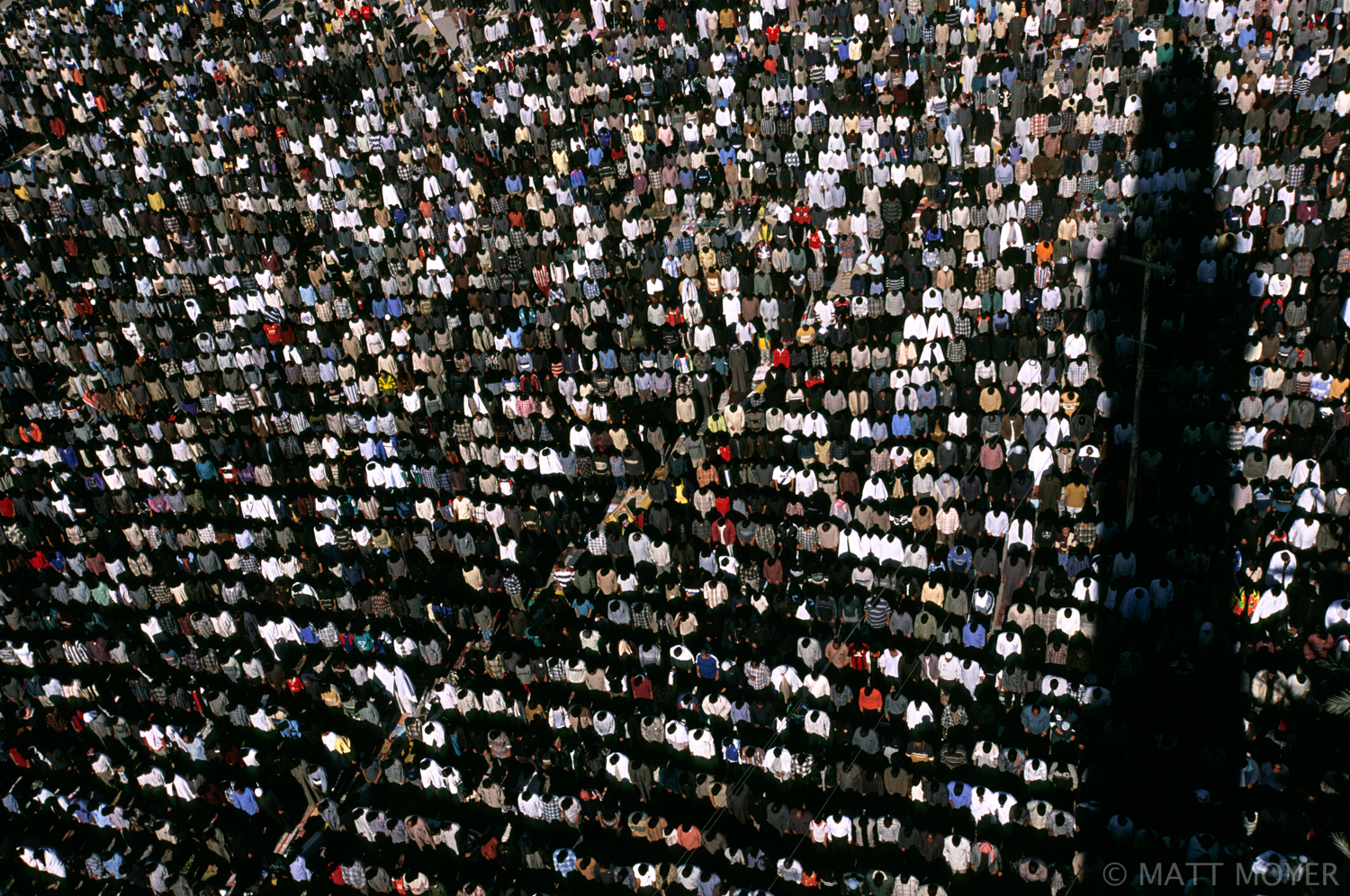
A throng of the faithful attend Friday prayers in Sadr City, Iraq. With the fall of Saddam Hussein’s regime the Shiites have emerged from decades of repression to seize the reins of power in Iraq. Making up over sixty percent of Iraq’s population the Shiites will most likely determine the future course of one of the Middle East’s most important countries.
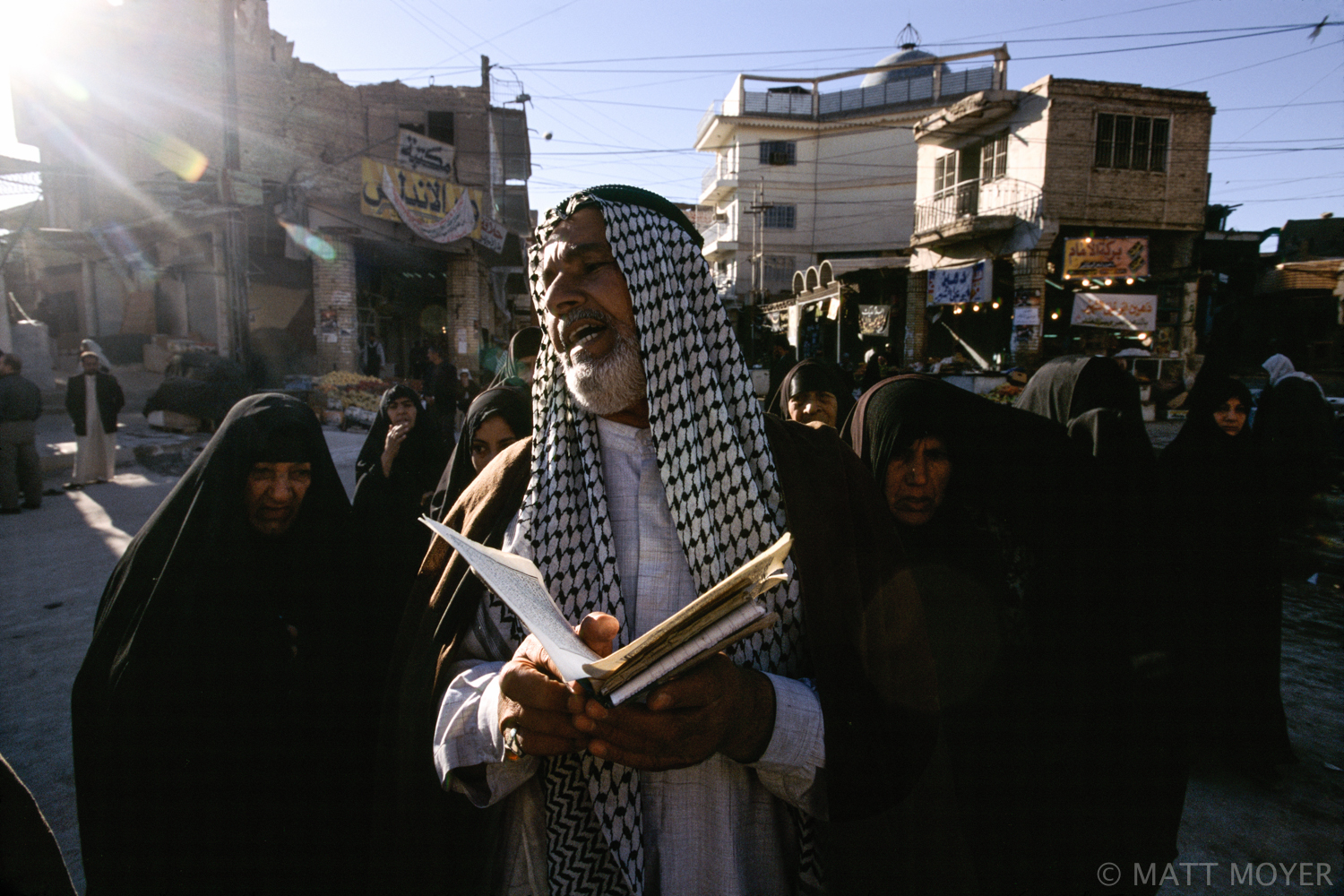
A Shiite man reads from the Koran outside the Imam Ali shrine in Najaf, Iraq.
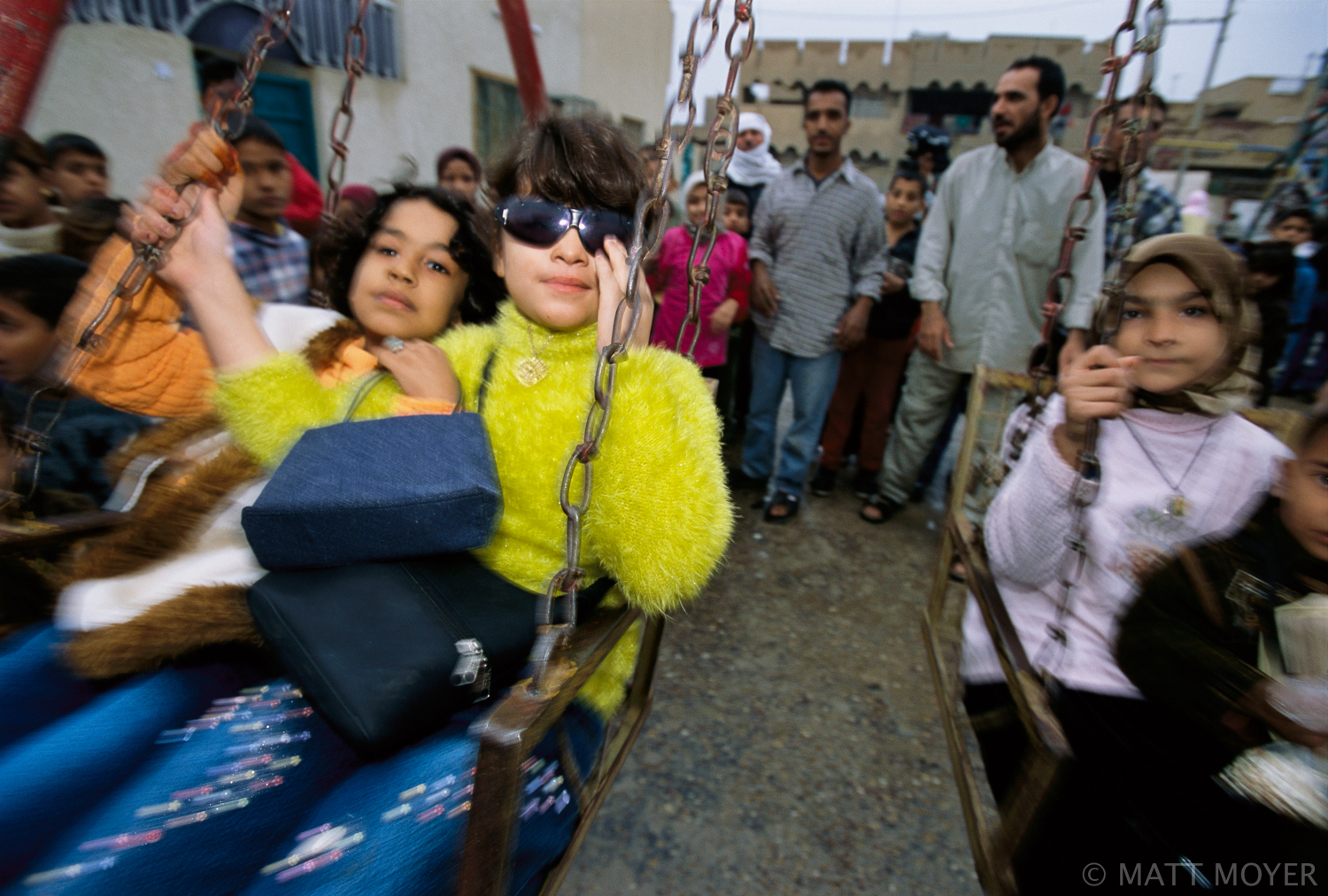
Local children line up for their turn to swing in Sadr City, Iraq, a shiite quarter of Baghdad.
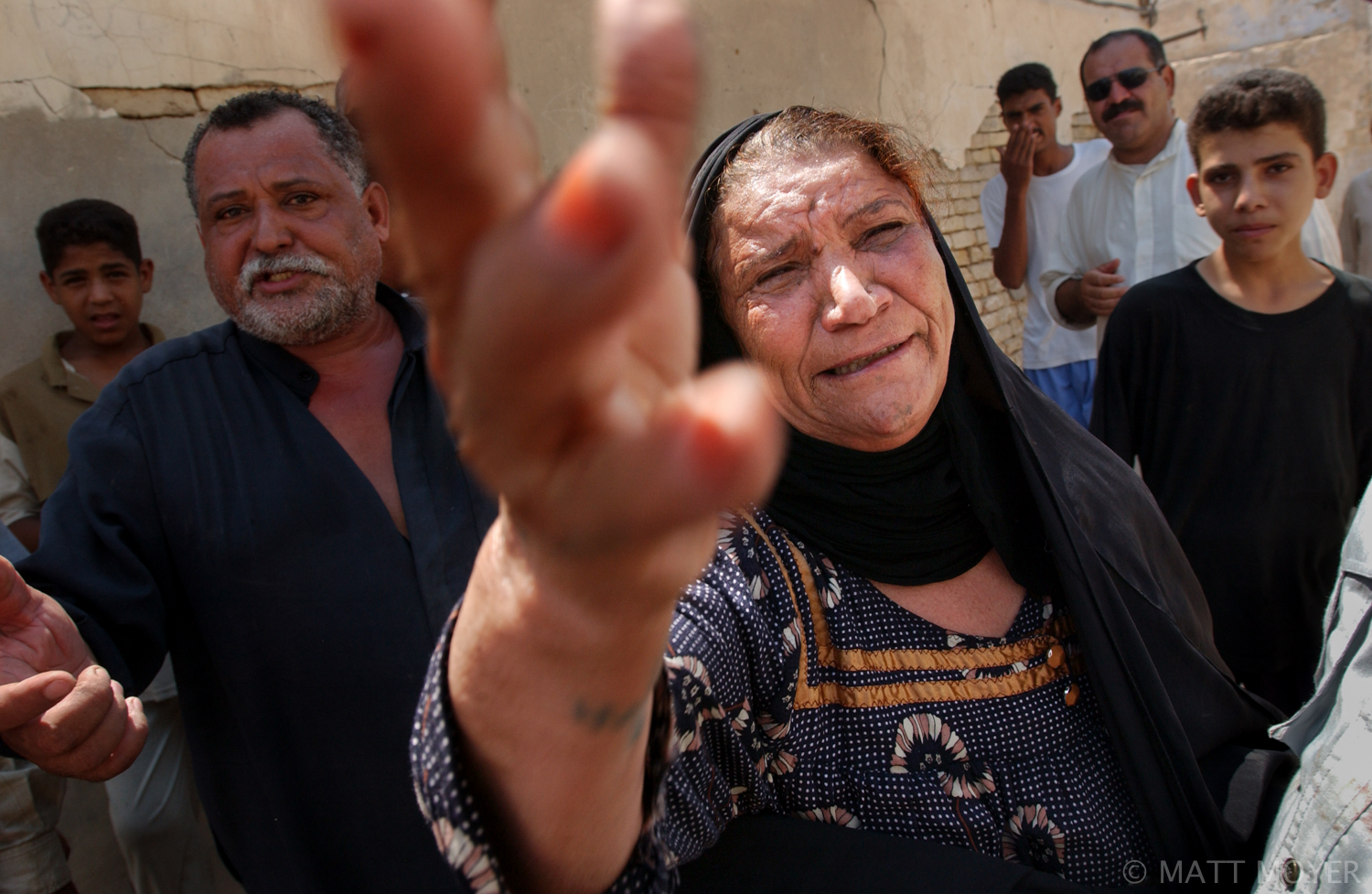
An Iraqi woman cries after having her home ransacked by a mob that attacked a group of brothels and beer sellers in her run down neighborhood in Basra, Iraq. The mob, made up of men and boys from the neighborhood and a few Islamists, threw stones at the prostitutes as they ran for their lives. The mob also set fire to several of the businesses. In recent weeks there has been an increase in attacks on businesses that sell alcohol in Basra and some brothels have been attacked with hand grenades
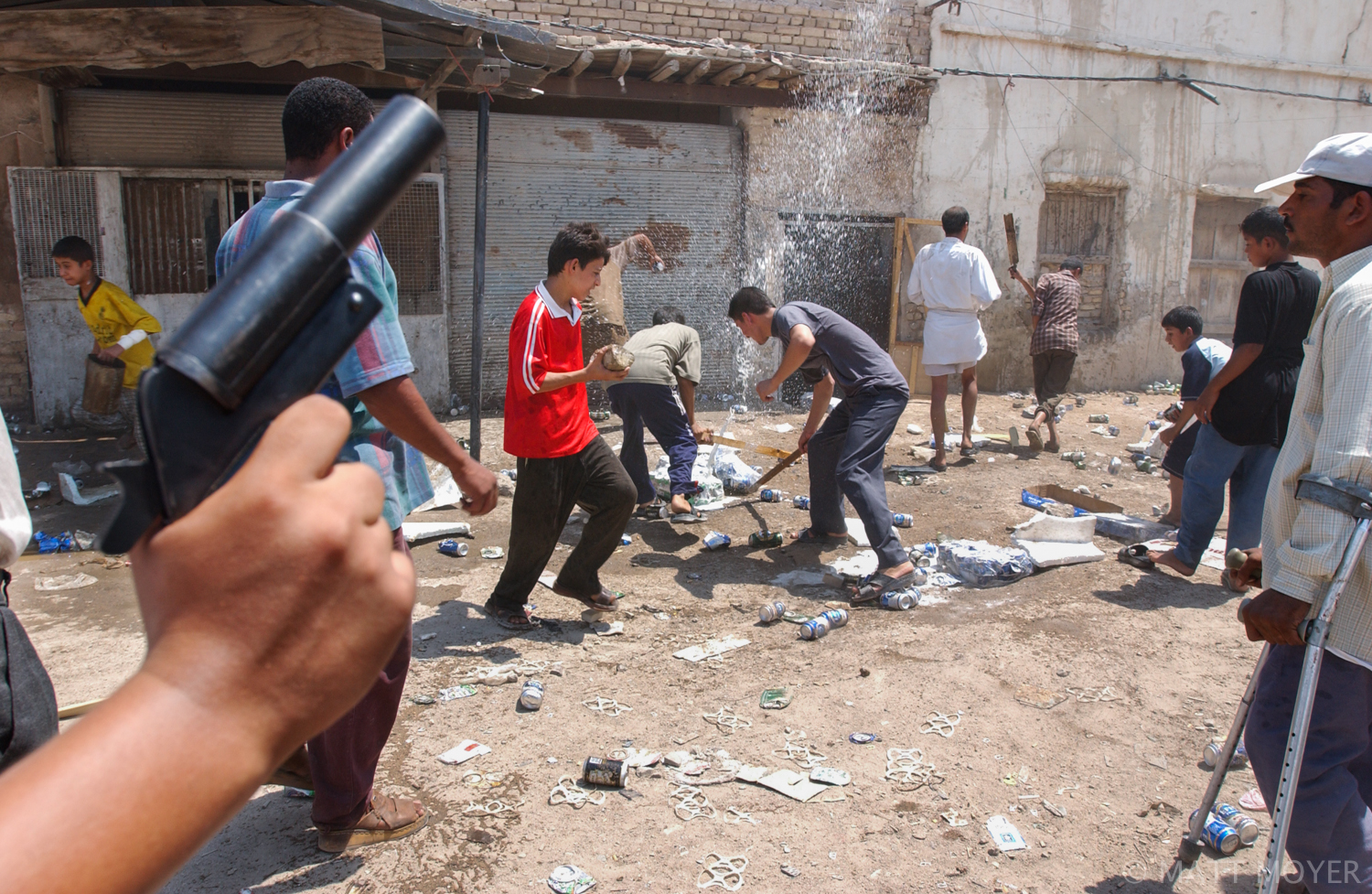
Members of a mob attack a brothel and destroy cases of beer found inside in the Old Basra neighborhood of Basra, Iraq. The mob, made up of men and boys from the neighborhood and a few Islamists, threw stones at the prostitutes as they ran for their lives. The mob also attacked several other brothels and beer selling businesses. In recent weeks there has been an increase in attacks on businesses that sell alcohol in Basra and some brothels have been attacked with hand grenades.
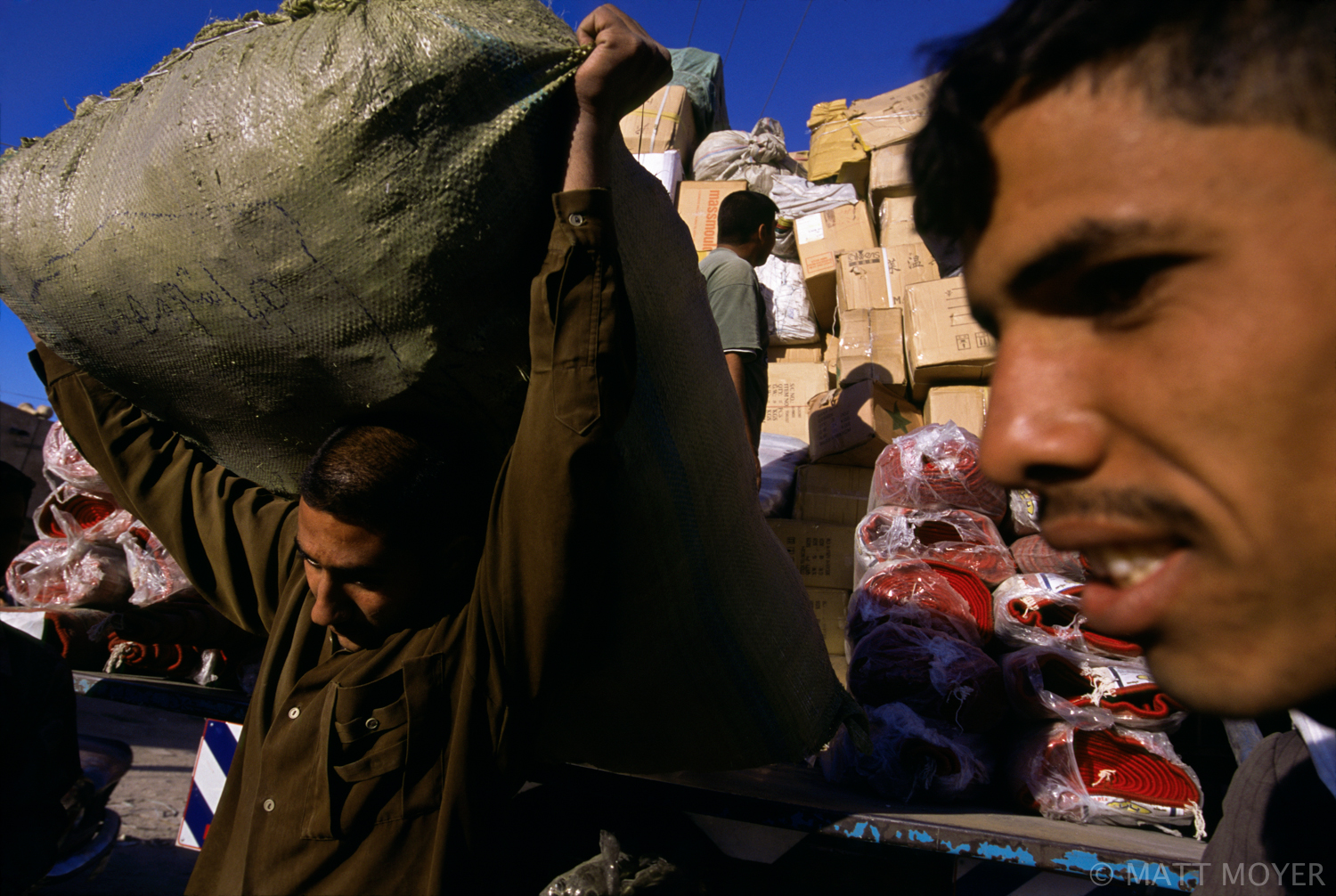
Goods are unloaded from a truck in Najaf, Iraq.
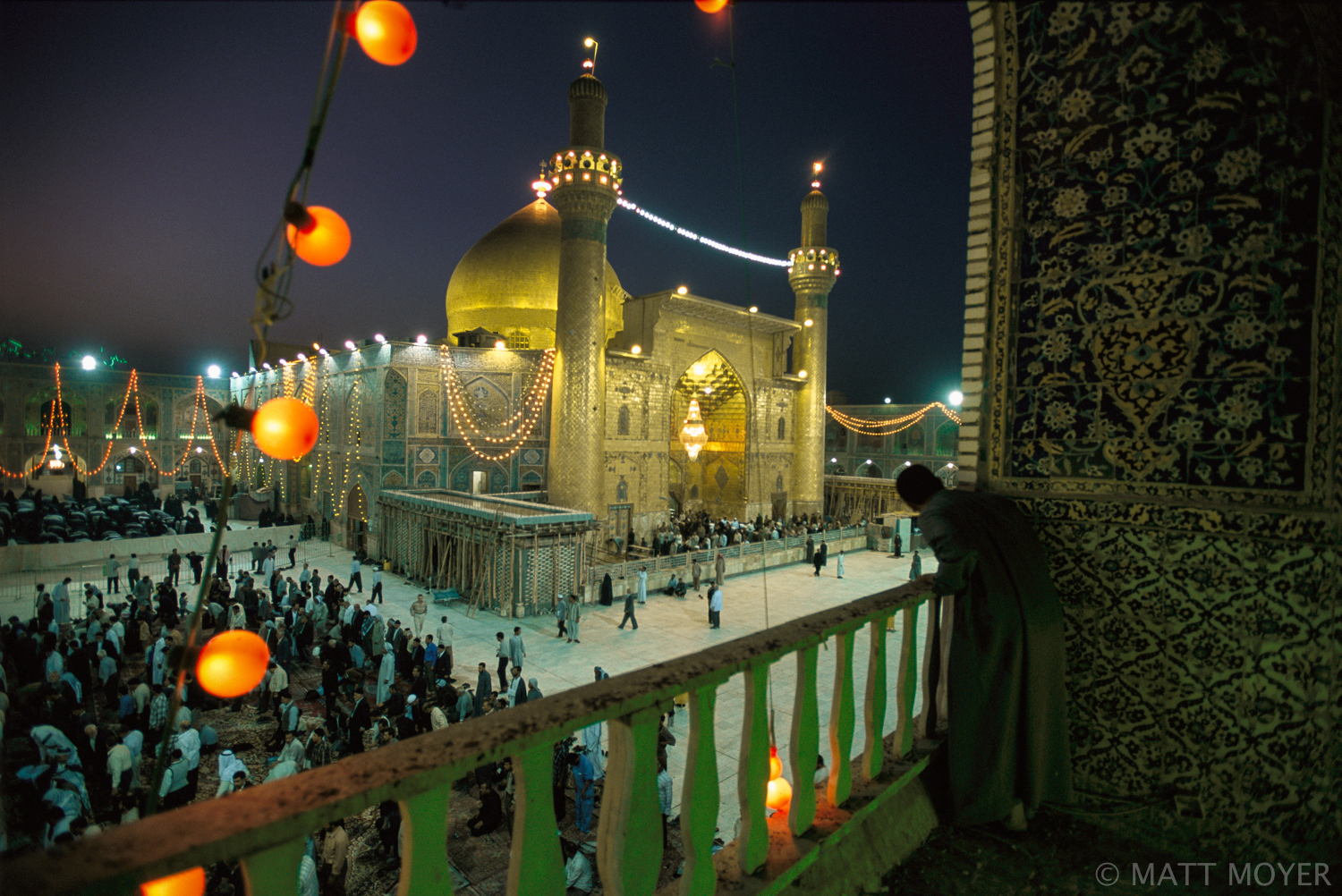
Shelled during the failed anti-Sadam uprising of 1991, and used as a base by insurgents fighting the US in August, the Imam Ali Shrine, one of the holiest Shiite Muslim sites, glows as crowds gather for evening prayer in Najaf, Iraq.
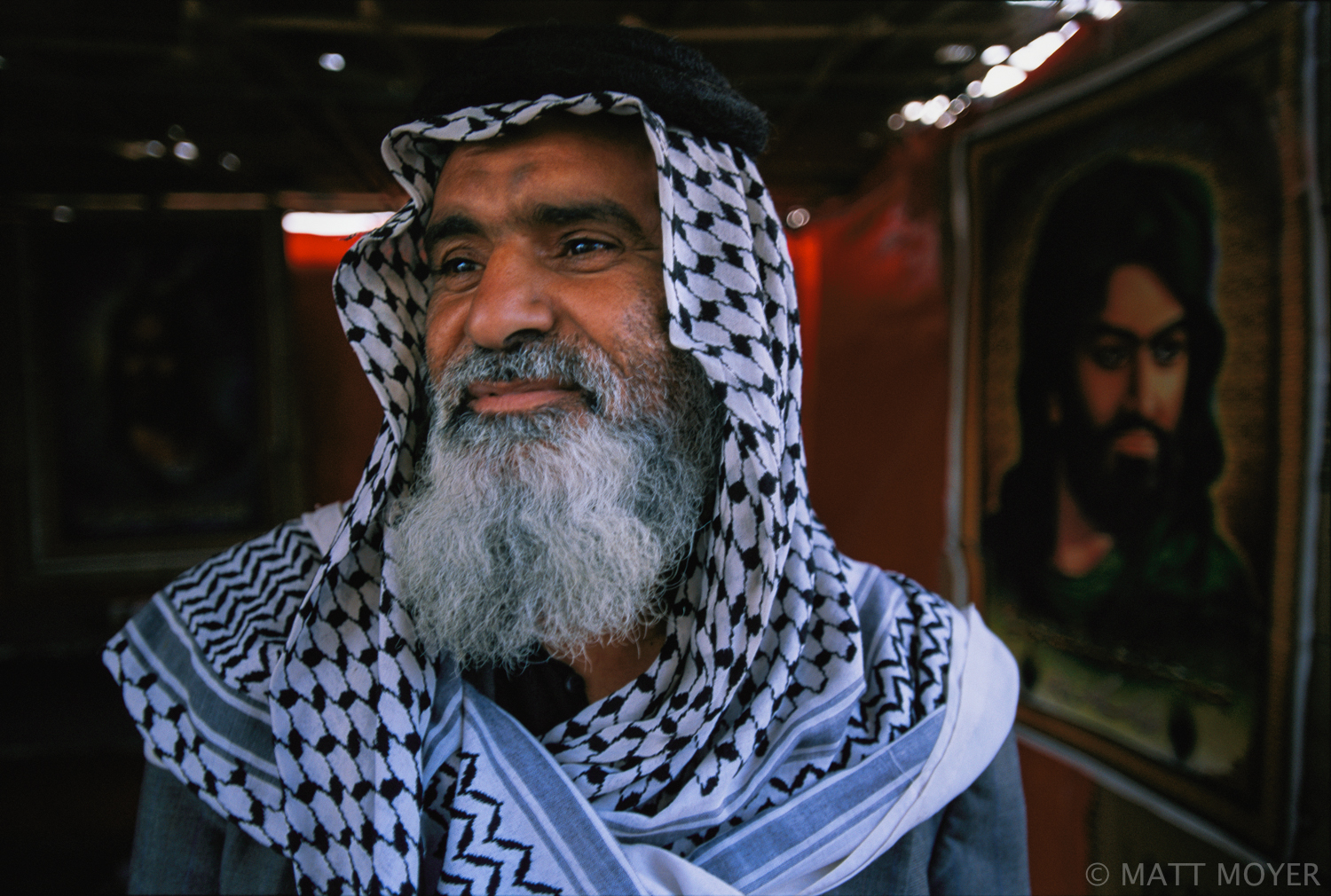
A watchman at a Najaf market has thieves, and more, to worry about in the chaos of post-Saddam Iraq in Najaf, Iraq. Factional struggles have provokes armed clashes between supporters of rival clerics in the holy city.
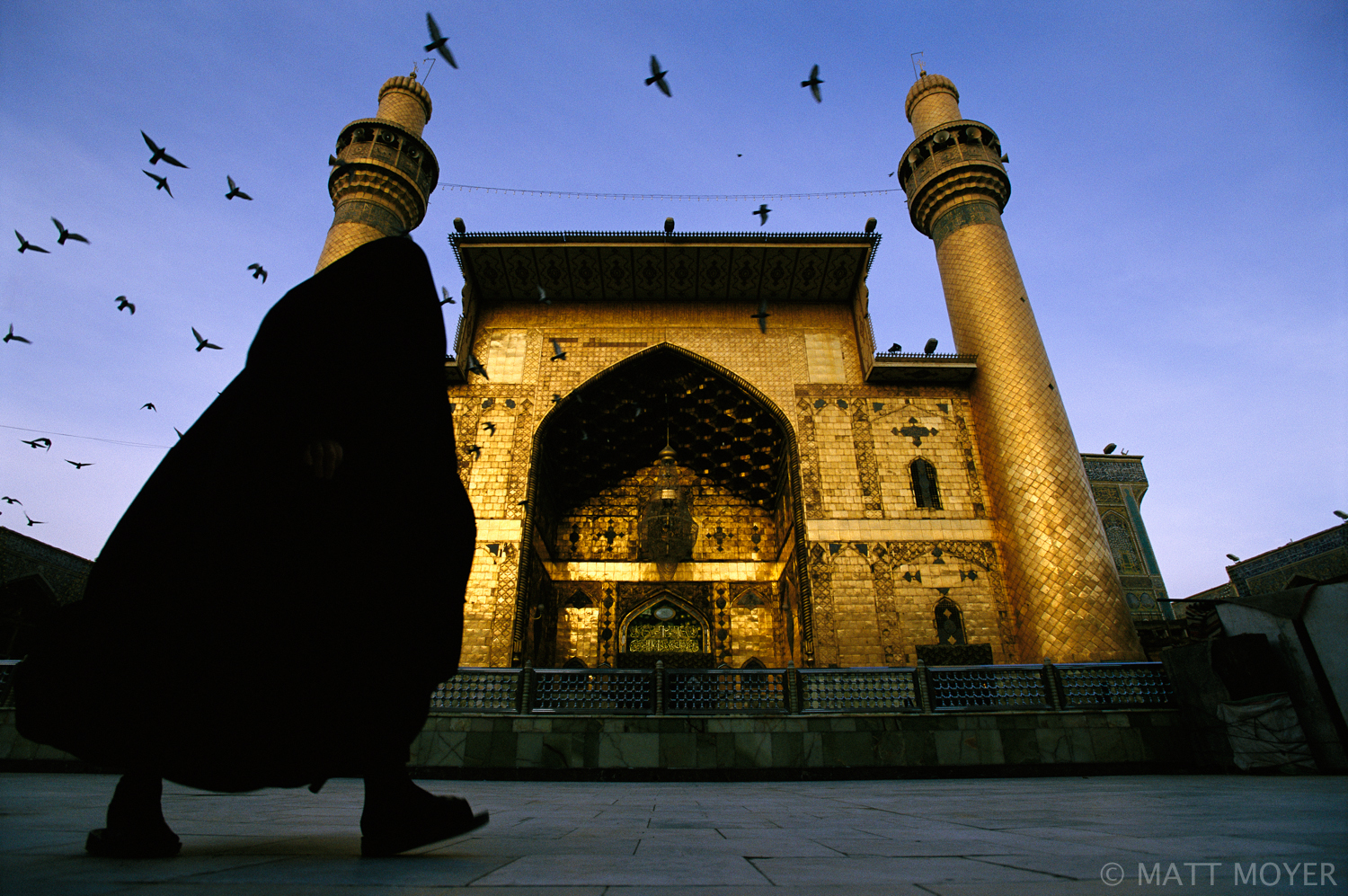
A Shiite woman walks in front of the Imam Ali shrine as dawn breaks in Najaf, Iraq. The shrine will soon fill with worshipers taking part in morning prayers.
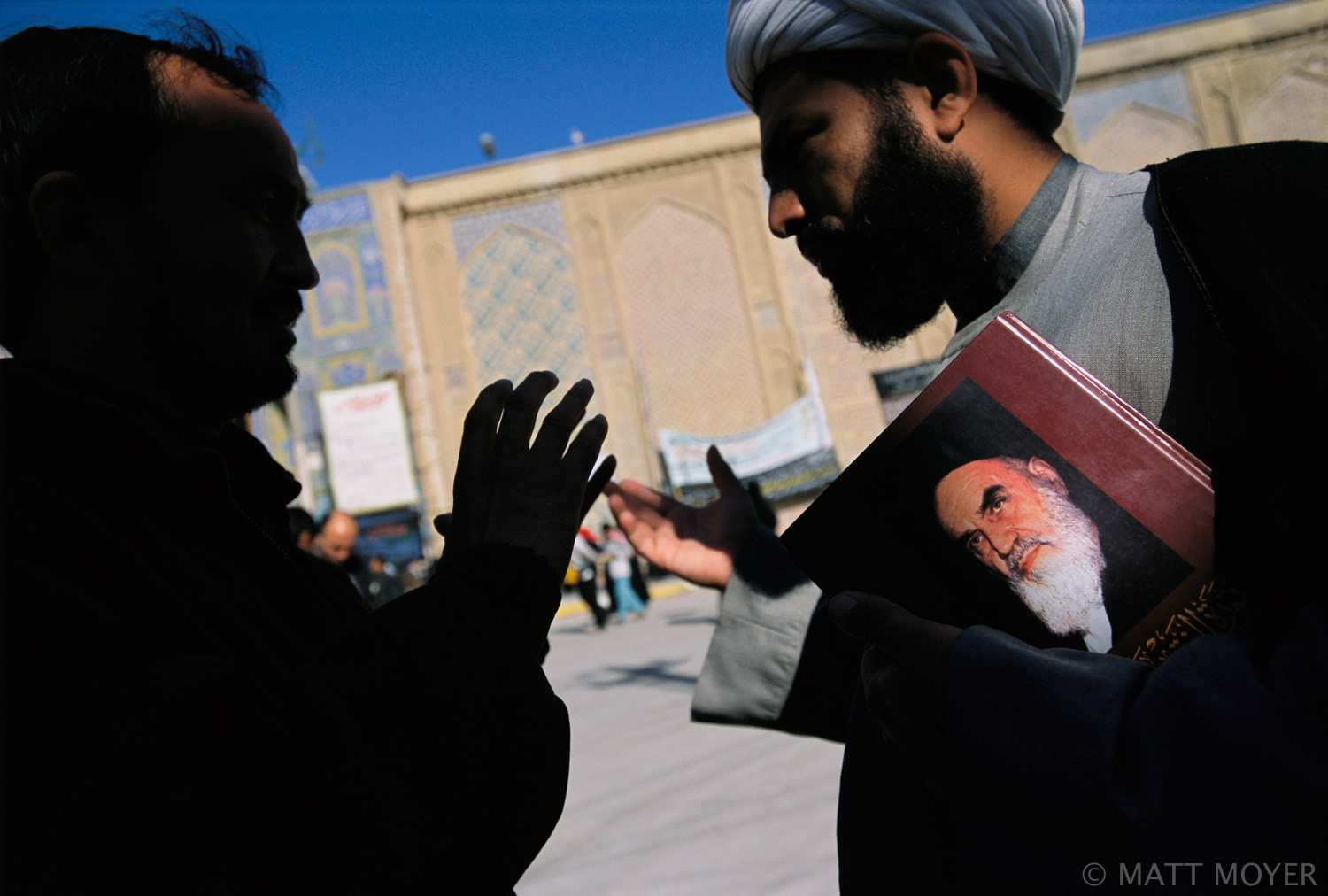
Sheikh Mousa Ibrahim Saidy, 29, a teacher at Said el Sadr School speaks with a worshipper outside the Imam Ali Shrine in Najaf, Iraq.
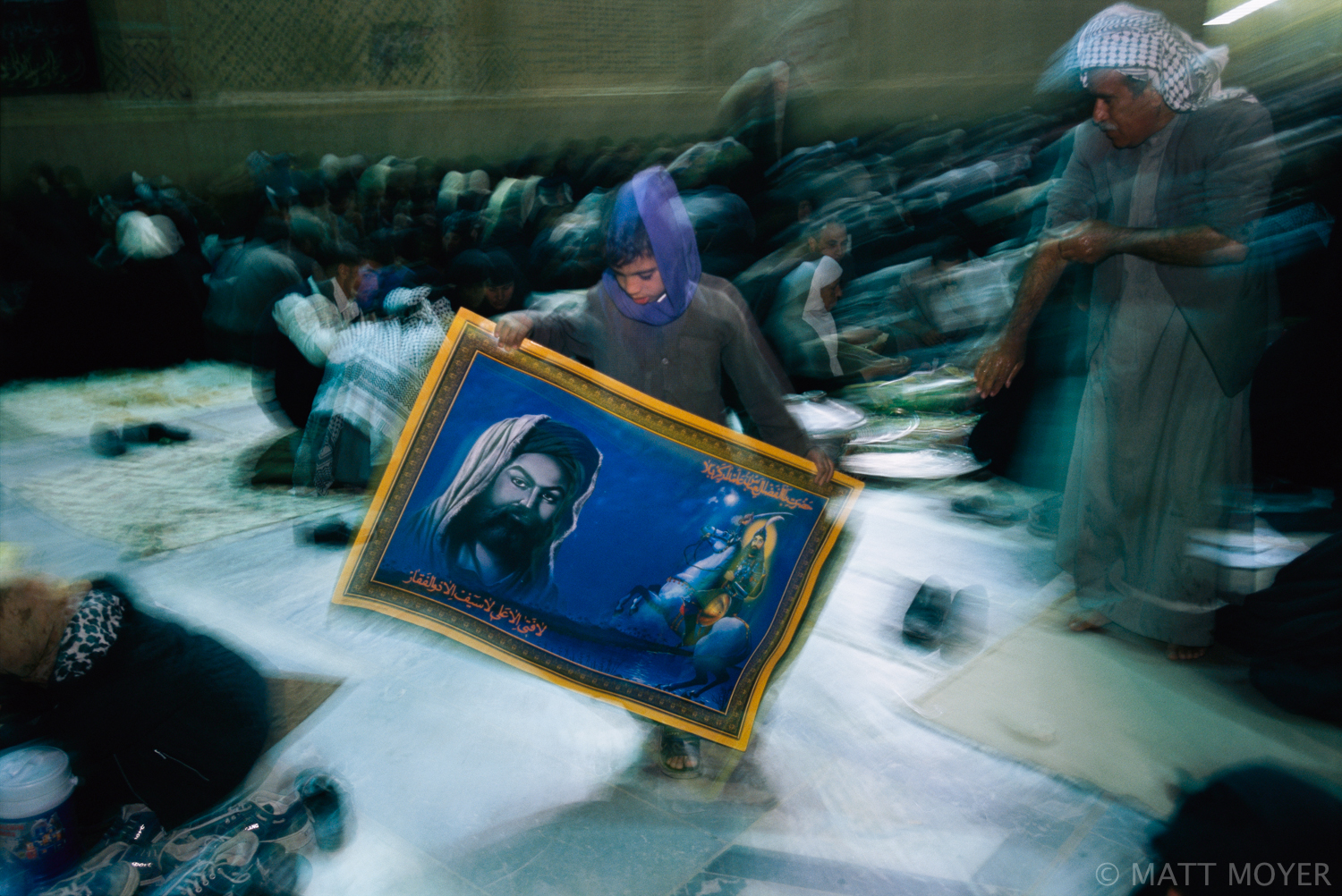
A young boy hawks posters of Imams in Najaf, Iraq. With the fall of Saddam Hussein’s regime the Shiites have emerged from decades of repression to seize the reins of power in Iraq.
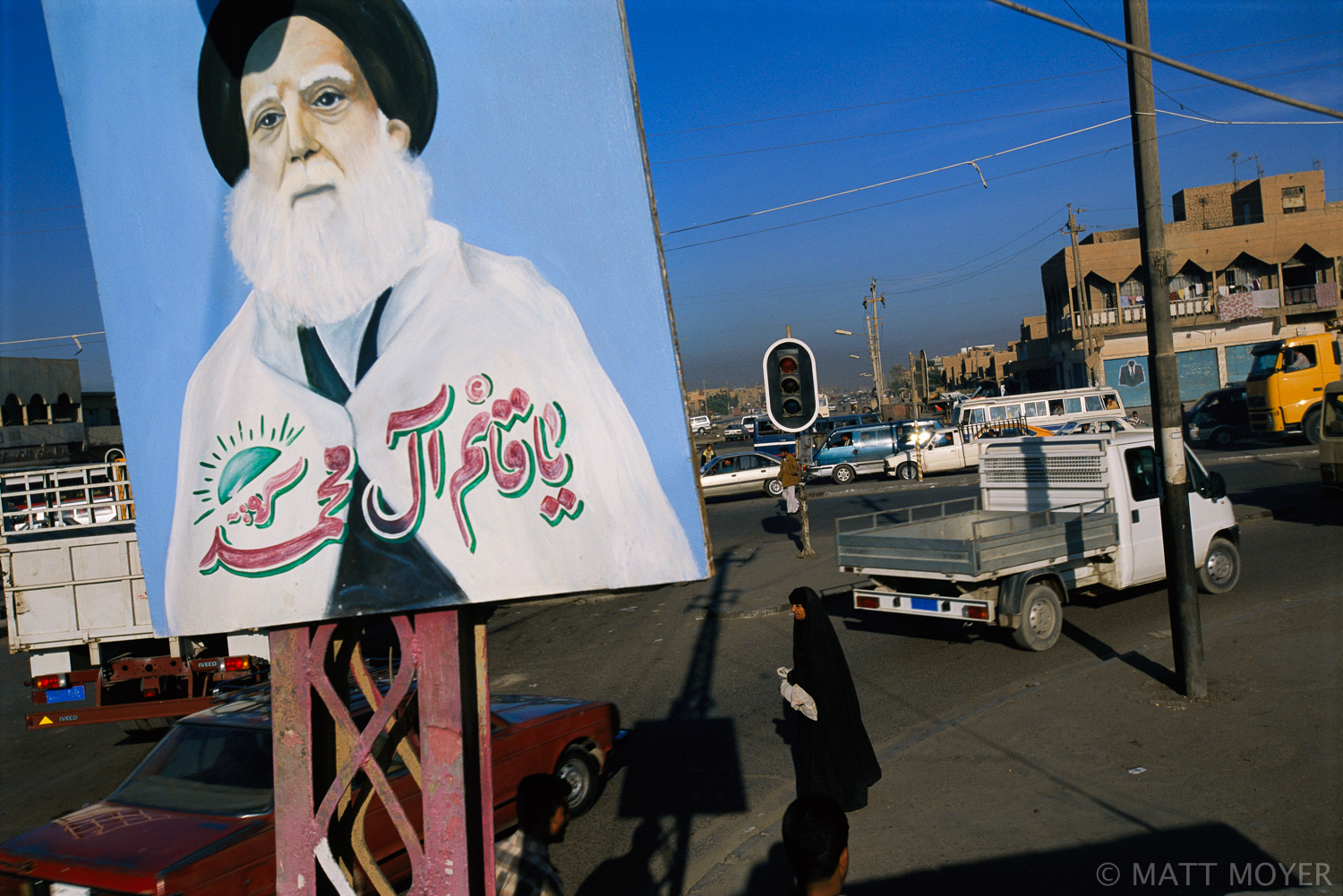
A painting of Mohammad Sadik el Sadr, the revered Shiite cleric, hangs over an intersection in Sadr City, Iraq. Sadr City, named after the cleric who was killed by Saddam in the late 1990s, used to be called Saddam City. With the fall of Saddam Hussein’s regime the Shiites have emerged from decades of repression to seize the reins of power in Iraq.
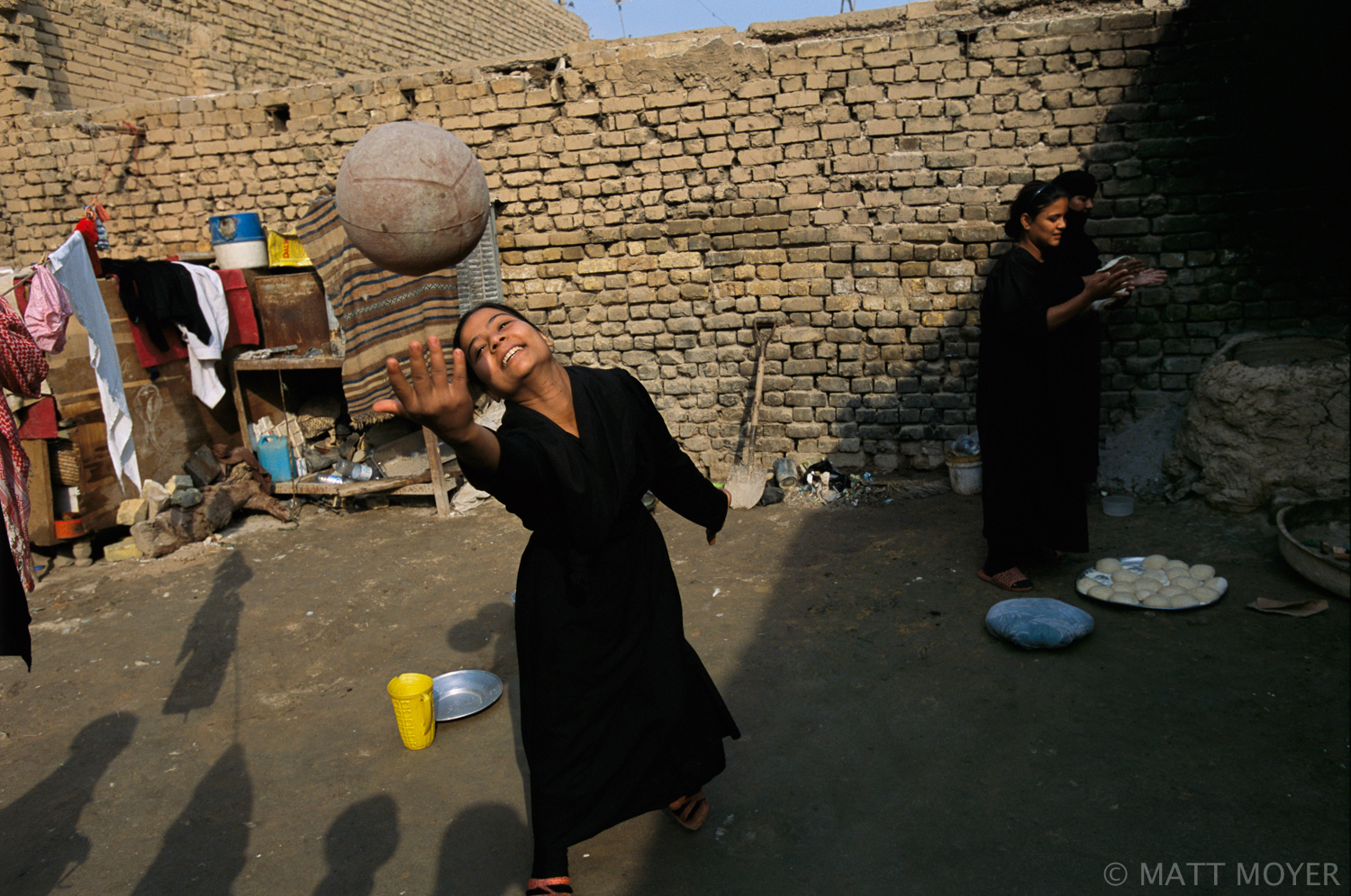
Noel Abdel Wahid, 14, plays ball as her mother and sister make bread in the courtyard behind their home in the sprawling Shiite slum of Sadr City in Baghdad, Iraq. The Wahid family lives in a two-room house without plumbing and they have not been able to afford to buy meat for four years.
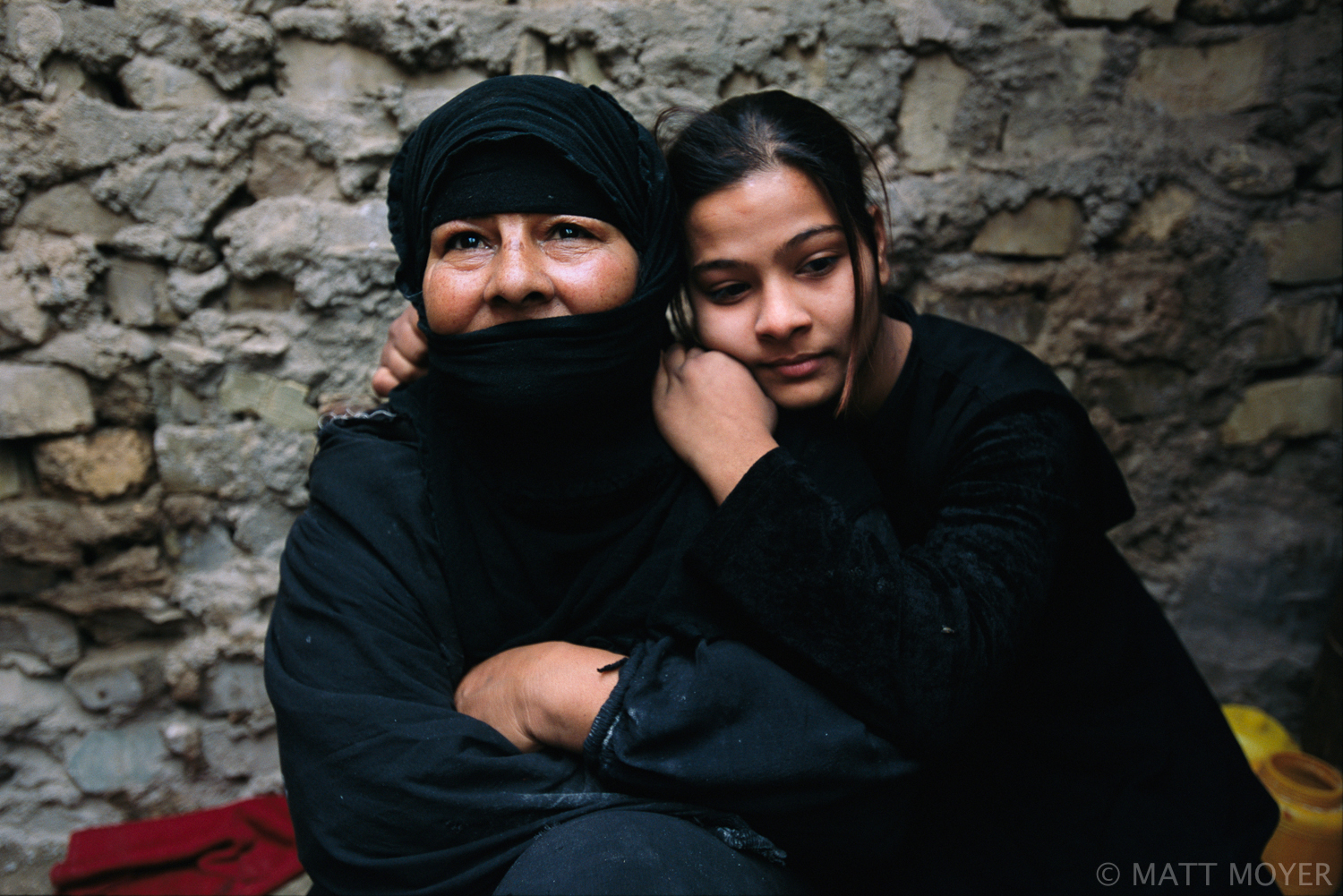
Noel Abdel Wahid (R), 14, and her mother Sadia share a tender moment in their outdoor kitchen at their home in the sprawling Shiite slum of Sadr City in Baghdad, Iraq. Noel is supposed to marry a cousin, who she does not want to marry, but feels she must in order to escape the poverty she lives in and to help her parents escape poverty.
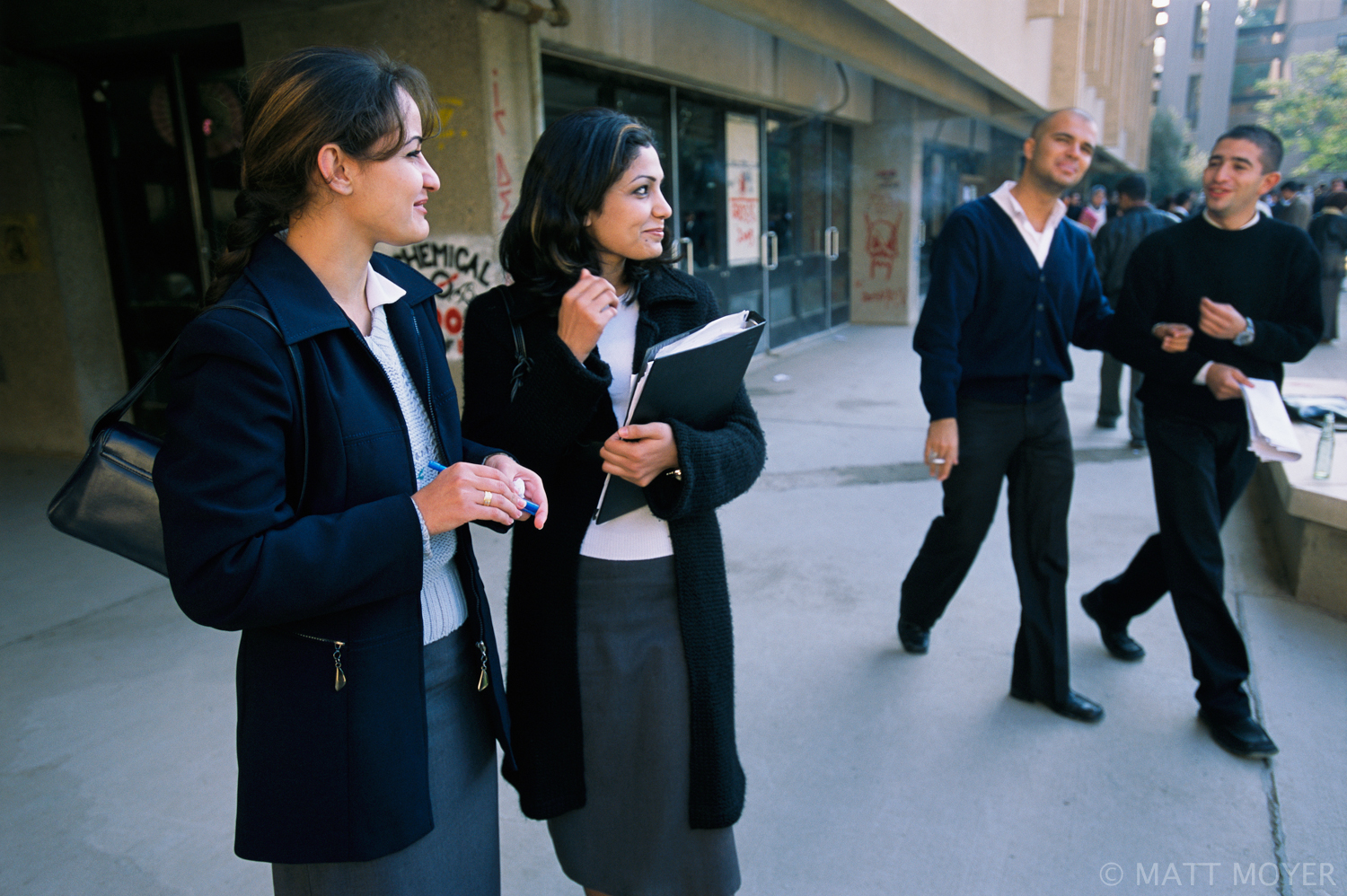
Female students and good friends, Areej Jasam (2nd L), a Shiite, and Fulla Walid (L), a Sunni, check out some male students at Baghdad's al-Nahrayn (Two Rivers) University, where men and women of different faiths mix in Baghdad, Iraq.
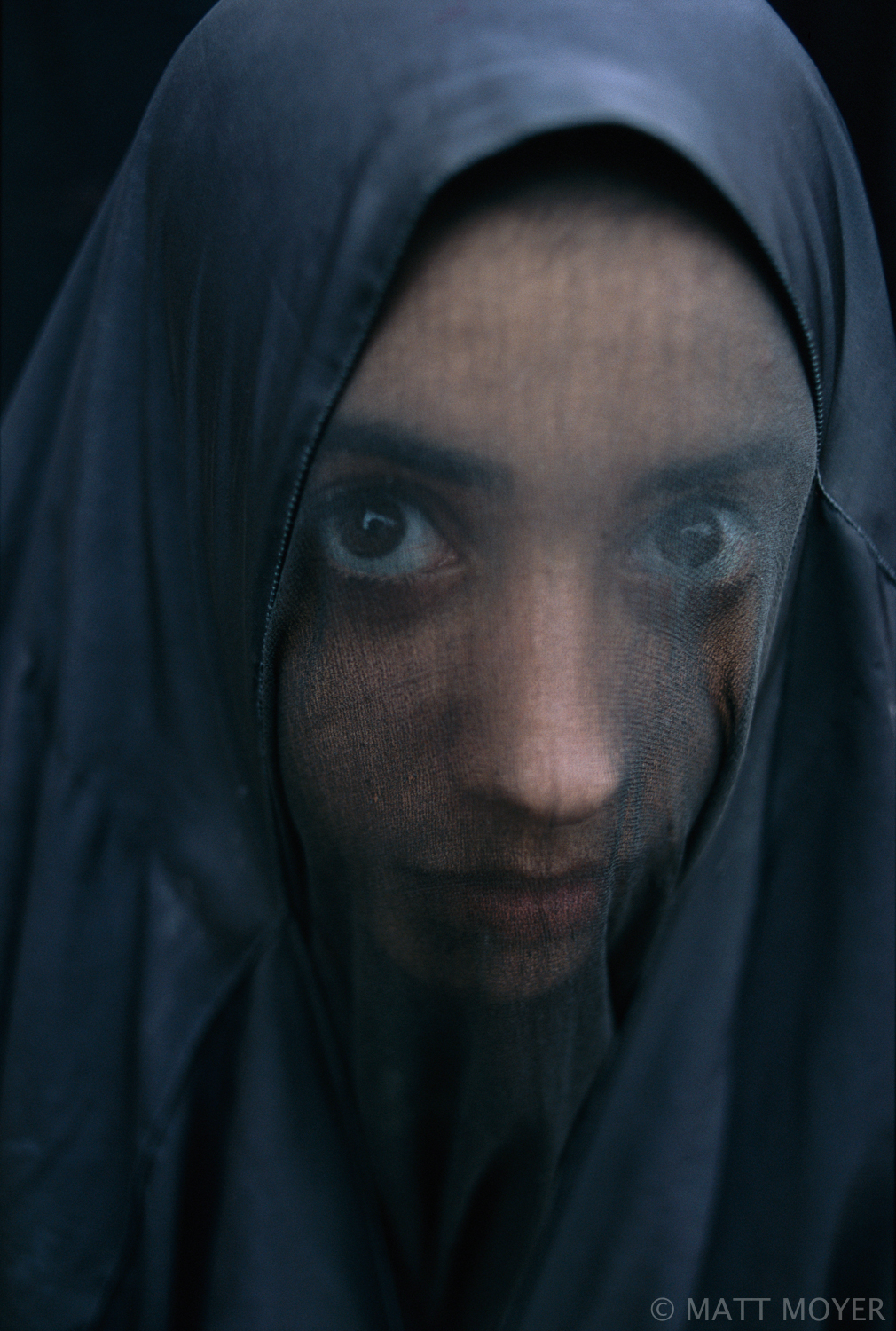
Noor Abdel Hadi, 17, tries on her cousin's hijab at her home in Hillah, Iraq. It is technically her choice to wear a veil in public, but Muslim women often don the veil to avoid harassment in the street or follow their husband's wish to wear the veil as a show of modesty.

A Shiite boy works at a brick factory just outside Hillah, Iraq.
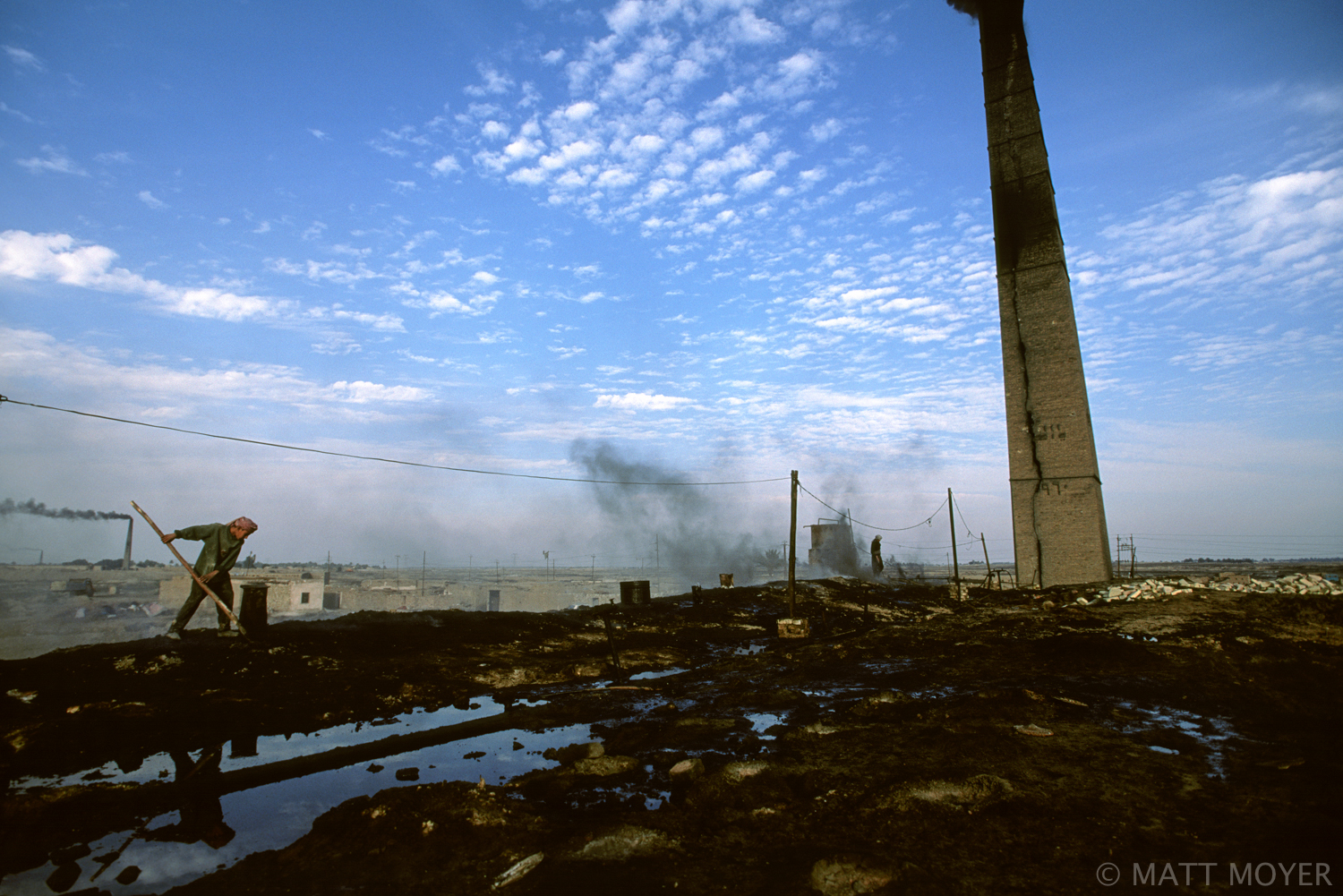
A Shiite boy works at a brick factory just outside Hillah, Iraq.
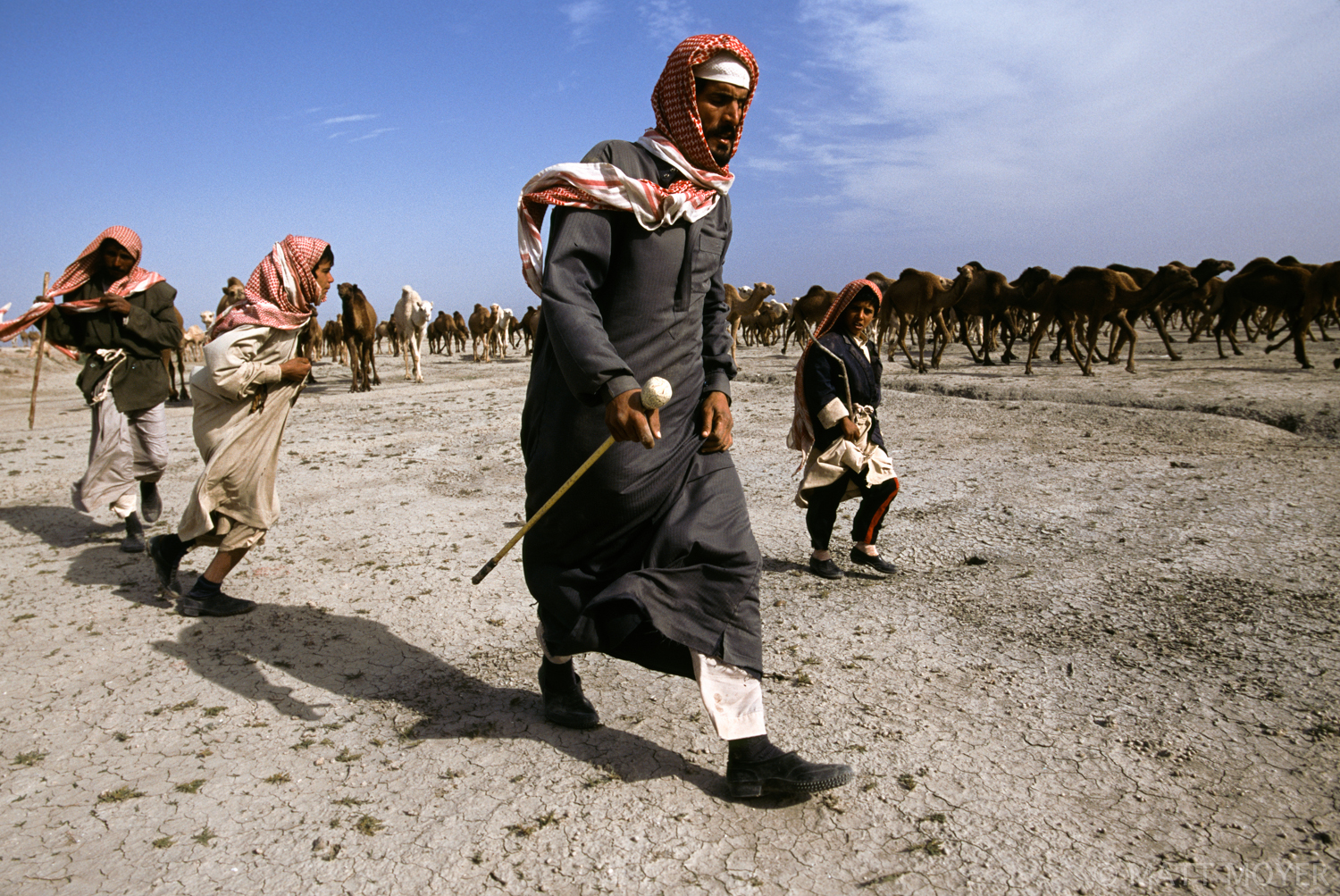
Shiite Bedouin camel herders walk across the desert with their herd outside Nasaria, Iraq.
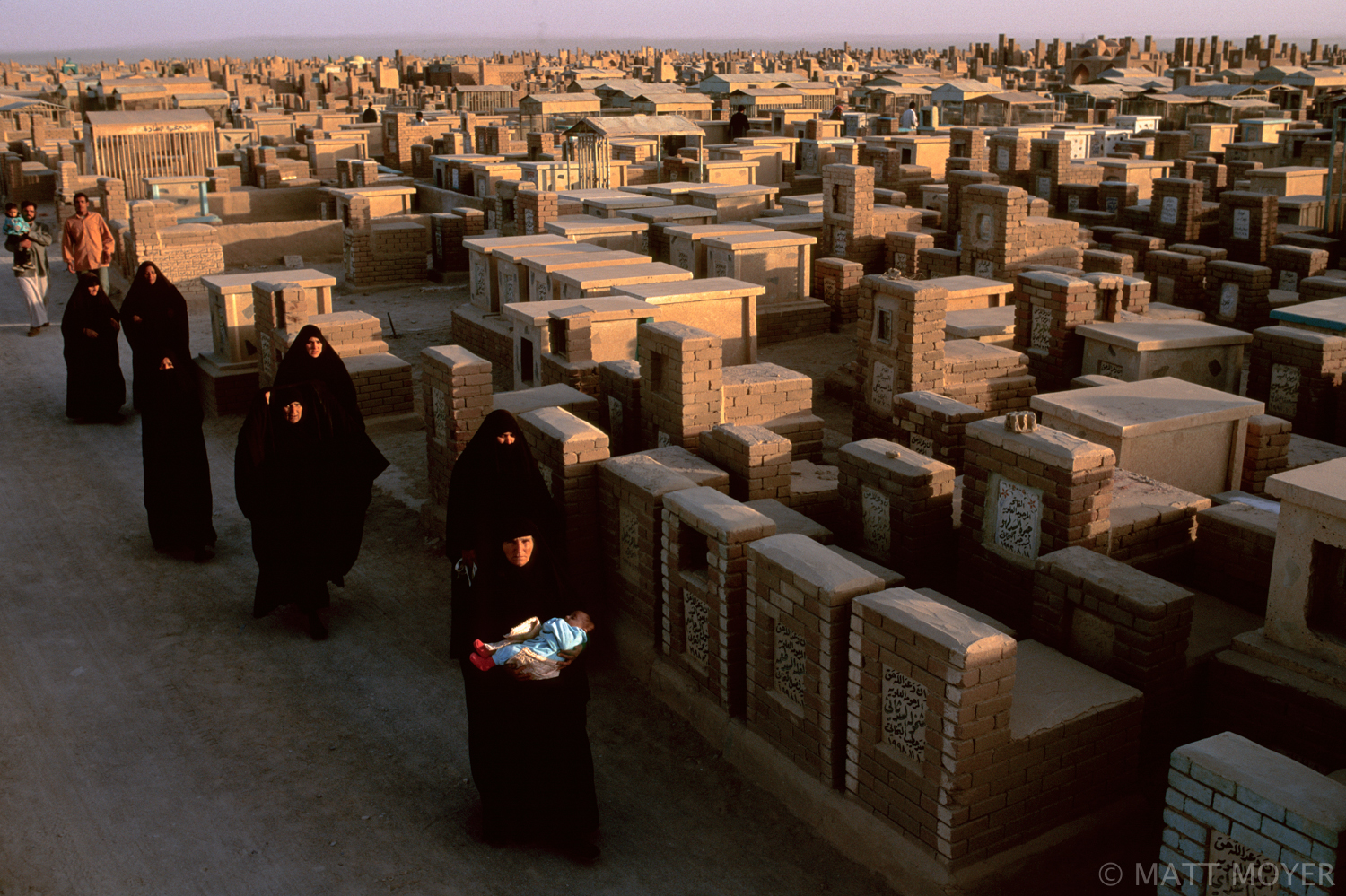
Shiite mourners walk through the Valley of the Peace Cemetery in Najaf, Iraq.

A man accused of selling CDs with sexually explicit pictures on it receives ten lashings in a court set up by rebel cleric Moktada al-Sadr in Najaf, Iraq. Most senior Shiite clerics frown on al-Sadr's heavy-handed approach.
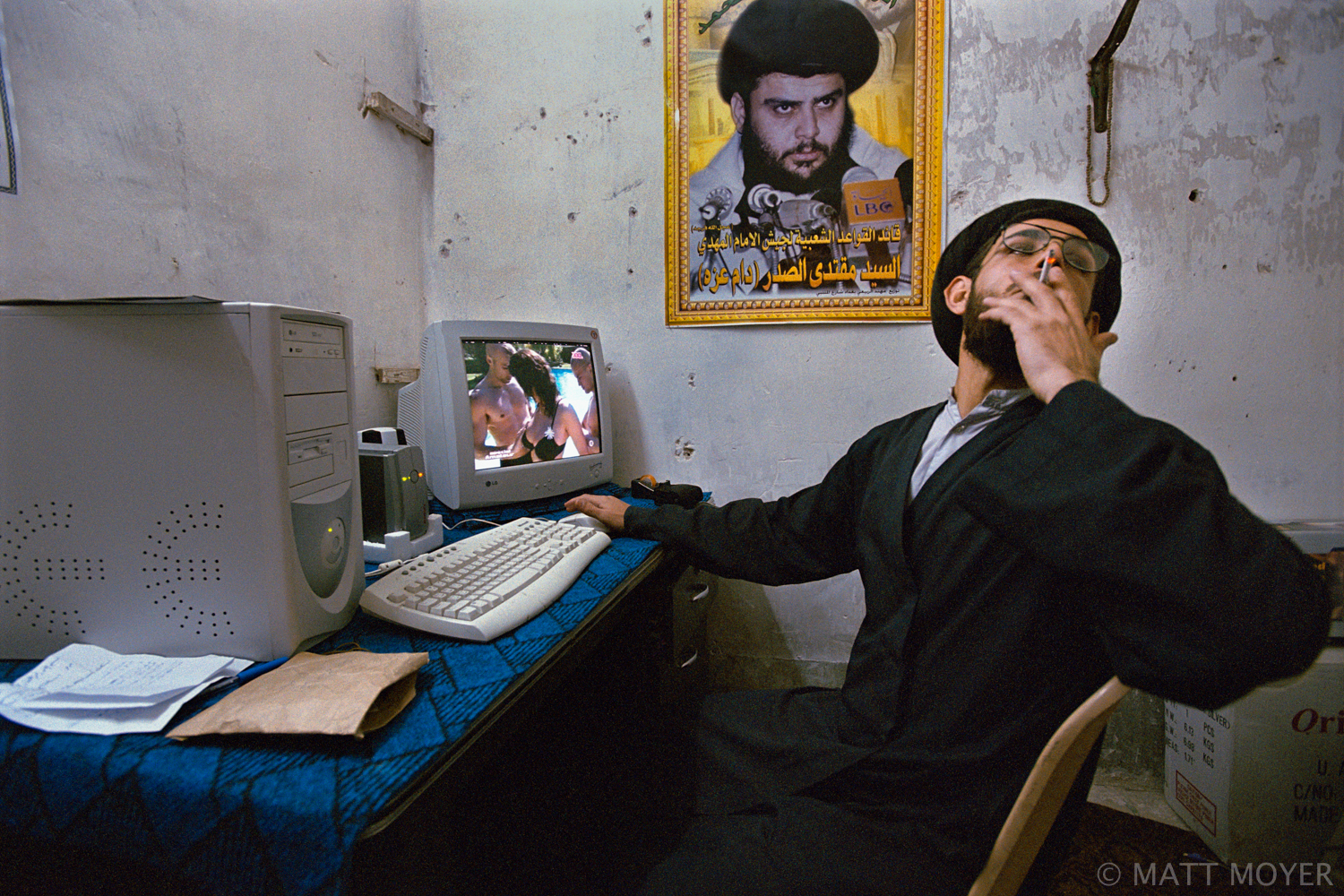
At a court set up by rebel cleric Moktada al-Sadr, a cleric smokes a cigarette after finding sexually explicit images on a confiscated CD in Najaf, Iraq. Najaf is patrolled by Sadr's own moral police and those caught selling CDs with illicit images on them could face jail time or flogging in his court.

With the power out again, the Abdel Wahid family eats dinner by lantern light in their home in Sadr City, a sprawling Shiite slum where an estimated one million Shiites live in Baghdad, Iraq. The Abdel Wahid family explained that they had not been able to afford meat for five years.





























Published
To read the article in National Geographic click here.




